The Future of Locally Rooted Luxury Tourism
The third CJPF Live was held on December 10, 2022, in Tochigi. Tochigi Prefecture has a rich history that has been passed down for over 1,200 years, represented by the world heritage shrines and temples of Nikko, and a rich natural environment, represented by the the Ramsar-registered wetlands Oku-Nikko-shitsugen and Kegon Falls, which is one of the three great waterfalls of Japan. For these reasons, Tochigi has welcomed many tourists as an international tourist destination since the Meiji era.. Tochigi is also rich in water sources, such as the Shojinzawa Spring Water in Shioya, which also makes it a flourishing sake brewing. Tochigi supplies the high-quality vegetables grown in a rich natural environment, as well as the strawberries and other agricultural products that can be enjoyed all year-round, to the Tokyo metropolitan area and nationwide. Tochigi is easily accessible from Tokyo metropolitan area in about two hours by Tobu Railway,JR,etc..and expectations for short-distance luxury gastro-tourism through Japanese railways are increasing, Here we discussed with people who are working to create local attractions and experts on Japan and overseas about what local luxury tourism should be.
The Changing Concept of Luxury.Global Requirements forLuxury and Japan’s Potential
The theme for the first part of this session is “Possibilities for co-creation in luxury tourism”.
Professor of Keio University Seiko Shirasaka proposed a new concept of “JAXURY” as a way of Japanese luxury.
Shirakawa says, “The image given by the word ‘luxury’ in Japan is not necessarily match with the word’s original meaning.
In the Keio SDM laboratory,we explored whether there is a certain luxury in Japan’s authenticity, and created the concept of “JAXURY”(Japan’s Authentic Luxury). We asked diverse people to list products and services that can be JAXURY, and summarized and analyzed their commonalities to establish ten core viewpoints.
Currently, we are awarding products and services that are realized as JAXURY from 10 viewpoints by experts in each industry..
In the future,we will refine and systematize these viewpoints, and carry out initiatives to disseminate it to the world.”
According to Takaaki Umezawa,Chairman of A.T. Kearney Japan, there are two types of luxury. “JNTO(Japan National Tourism Organization) provides two definitions. One is Classic Luxury, which is more about status symbols and luxury in every element. The other is Modern Luxury, which prioritizes individuality and sustainability, and it has been increasing in the world in recent years.
People are looking for unique experiences, self-transforming journeys, such as ecotourism and sustainable tourism, rather than luxury, I believe that Japan should focus on gasto-tourism, art and architecture thamed tourism, and adventure tourism.
In Tochigi, we planned a two-night three-day touring (from Koga to Nasu to Oku-Nikko) with classic car tour and prestige cars, and it was a great success.”
Sakiko Yamada, president of the Academy of Gastronomy Japan, says, “As an international standard, sustainability is a prerequisite for luxury.” She continues, “Actually, food waste and loss is the third highest contributor of global greenhouse gases emissions.
Food is the number one reason for inbound visitors to Japan, We must be engaged in sustainability initiatives.
We are working with luxury brands on food loss and waste. As a recent topic, , ingredients that were to be thrown away were coated in chocolate and presented in boxes made from washi, a traditional Japanese paper with a rich history of more than 300 years. This project helped to both prevent food loss and waste and pass down a traditional Japanese skills. I think that collaborating with overseas luxury brands will be an effective way to transmit Japans authenticity.” Ryoten Hitomi is chief priest of Nikkozan Rinno-ji Temple, which was established in 776. For him, luxury means inspiration and satisfaction. “Every person who visit Nikko experiences its traditions and customs and feel deeply moved and satisfied—that is the luxury. Currently I’m working with The Ritz-Carlton, Nikko, to organize a rosary-making experience, a goma prayer, a zazen experience, as well as a sutra copying experience and a Buddha-copying experience. In a special place called the precincts of the temple, we’re working to make it possible for them to experience Japanese culture casually, and return home with satisfaction thoroughly the experience.”
Alex Bradshaw is the CEO of GOTOKU, a company that introduces Japanese culture to the world and helps to sustain regional cultures.
“I believe the future of Japanese tourism lies in rural areas, but many regions do not realize their own value,so regional branding from an international perspective is necessary. For example, samurai have an image of the chonmage and swords, but in fact, they also have an aspect of being a man of culture.
By focusing on that, we are working to provide experiences that are entirely unique to that area. I think it is necessary for each regions to reassess their own resources, what kind of value they have, and how they should promote. This will help them to develop truly valuable regional tourism.”

ConsideringTochigi’s Luxury TourismPotential Alongside Regional Leaders
The theme for the second part of this session was “luxury tourism in Tochigi.” How are regional leaders working to develop regional attractions?
The Ritz-Carlton, Nikko, opened in 2020. Motoki Tanaka, director of sales and marketing at the Ritz-Carlton, Nikko, says, “I believe our role is to communicate attractions of the area as interpreted by the Ritz-Carlton. At the Ritz-Carlton, Nikko, we have sought to create mechanisms whereby we can contribute to and build connections with the region through our guests. For example, we are collaborating with regional craftsmanship, we offer seasonal menus using local ingredients, and we also provide activity programs that include sky watching and temple and shrine experiences. Nikko itself is full of authenticity. Working with the region, we are creating content to discover local attractions while securing the strength of the Ritz-Carlton brand.
Daisuke Fujii is director and CEO of Ohtawara Tourism. He says, “We are a farm village DMO. We create content in places that aren’t sightseeing spots to encourage people to gather in that area. One example is farm stay. Using regional industries and attractions, we have created more than 120 regional experiences and accommodation programs. This has helped to increase the number of people visiting and staying in the area. Further, as one effort to create a regional brand, we have renovated and transformed the tangible cultural property Iizuka-tei into an extended stay hotel complete with a living room and kitchen. Outside of our accommodation initiatives, we have also developed activities within the town to revitalize the overall economy. Instead of just focusing on luxury, I believe that using people to provide real experiences rooted in local culture can offer truly moving experiences.”
Japan World Link is a company engaged in regional branding activities based on the theme “from the North Kanto region to the rest of the world.” CEO Angus Miyaji says, “While the idea of unexplored regional areas can be a selling point for regional luxury tourism, it’s important to create special content that makes people want to visit that area, even if it takes several hours to get there. One brand we created was SAKE VOYAGE, a program for foreign visitors that involves visiting four sake breweries in Tochigi. In addition to developing, improving, and disseminating the program’s content, we reinforced the application and acceptance system by developing a reservation system and voice guidance software especially for foreign visitors. We also created a number of trial tours that would benefit the region, and the most popular one was an indigo-dyeing tour held at a special needs institution.
In addition to learning about indigo dyeing, participating in the program would help provide support to those with special needs. Participants could also try out organic ingredients grown with waste water from the dyeing process. I’ve no doubt there are many interesting experiences like this in Tochigi, and so moving forward we will look to uncover and develop them further.”
Kana Otowa is the manager of Otowa Restaurant in Utsunomiya in Tochigi Prefecture. “As a restaurant rooted in the terroir of Tochigi, we provide Tochigi-style French cuisine using ingredients and cooking methods that are unique to the climate and natural features of this region. In addition, we also support local food culture through food education for children and on-site cooking classes. Moreover, we are also a member of Relais & Châteaux, a global association of hotels and restaurants with strict admission standards. As a member of the association, our role is to disseminating the food culture of Tochigi to countries across the world.”

登壇者プロフィール
-
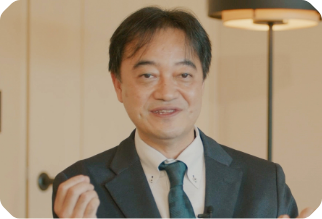
Professor Seiko Shirasaka
Keio University
Seiko Shirasaka earned his doctorate in systems engineering from Keio University. In 2010, he became an associate professor at the Graduate School of System Design and Management, Keio University. In 2017 he became a professor. He is currently involved in JAXURY research at the Authentic Luxury Lab, Keio SDM Research Institute. -
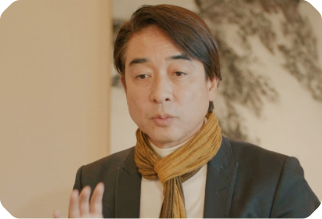
Takaaki Umezawa
Chairman, A.T. Kearney Japan; Chairman, CIC Japan
Takaaki Umezawa has been providing support to Japanese and American companies in the fields of strategy, innovation, and urban development for 25 years. In autumn 2020, he helped set up one of Japan’s largest urban innovation hubs CIC Tokyo in Toranomon, and is currently building a community of mainly startups. He supports efforts by the Japan Tourism Agency and the Agency for Cultural Affairs to set up tourism businesses throughout Japan, while he also contributes to governmental committee discussions on tourism for the wealthy (Japan Tourism Agency), intellectual property strategy (Cabinet Office), and more. -
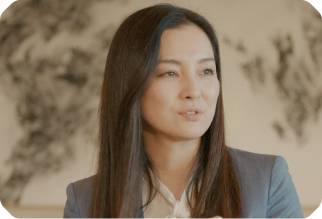
Sakiko Yamada
President, Academy of Gastronomy Japan CEO, Food Loss Bank
Sakiko Yamada is president of the Academy of Gastronomy Japan, which works with the UN and UNESCO on food research, and CEO of Food Loss Bank. In addition to creating brands from food that is otherwise going to waste, she hosts events with corporations on sustainability and diversity issues, tackling social issues from various angles. She is the winner of multiple awards, including the Japan Times Sustainable Award and the Veuve Cliquot Woman of Influence award from LVMH and etc. Her activities were selected by the UN World Food Programme to be part of its Masterclasses for a Better Food Future series of educational materials. As well as holding multiple concurrent roles—including as senior strategic advisor on SDG 5 Change for Los Angeles City and executive committee member of the Tokyo Bay ESG International Communication Project—She was also recognized with the Royal Order of Isabella the Catholic from the King of Spain. In the US, she is CEO of the movie and film production company Splendent Media, with one of her films recognized at the Venice Film Festival. She is currently working on production of the Attack on Titan movie with Warner Brothers. -
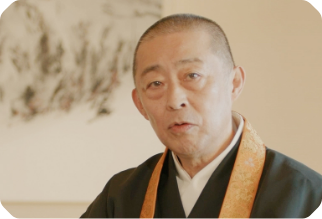
Ryoten Hitomi
Chief Priest, Rinno-ji Temple and Chuzen-ji Temple
As chief priest of Rinno-ji Temple, which is part of Nikko’s famous two shrines and one temple alongside Tosho-gu Shrine and Futarasan Shrine, Ryoten Hitomi hosts prayers and memorial services, and guides worshippers around the temple grounds. He also manages the temple as its most senior individual. Alongside the grounds of Tosho-gu and Futarasan, the grounds of Rinno-ji Temple have been designated a national historic site and part of the UNESCO World Heritage Site Shrines and Temples of Nikko. -

Alex Bradshaw
CEO, Gotoku
Born in Sheffield in the UK, Alex Bradshaw is head of overseas sales at the Sengan-en Garden, which is a registered UNESCO World Heritage Site. He is also the overseas public relations officer for Kagoshima Prefecture, frequently giving lectures across Japan. In 2019 he established Gotoku, a consulting company for local governments and companies in Japan that are seeking to enter the luxury travel market. -
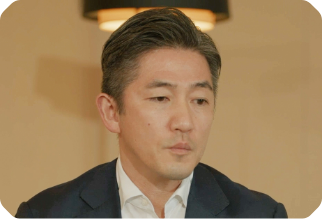
Motoki Tanaka
Director, Sales and Marketing Division, The Ritz-Carlton, Nikko
Following more than 20 years in the luxury hotel industry—including at the Palace Hotel Tokyo, The Savoy Group, The Peninsula Tokyo (as a founding member), and Conrad Tokyo—Motoki Tanaka moved on to become a founding member of The Ritz-Carlton, Nikko. His motto is to “contribute to regional societies through the creation of authentic content and stays.” -
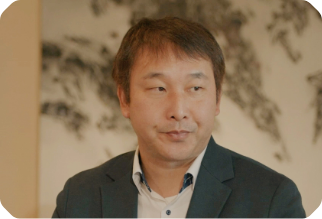
Daisuke Fujii
Director, Farm & Firm Company Director and President, Ohtawara Tourism
Through his Farm & Firm Company, Daisuke Fujii runs Shimotsuke Farm—a restaurant business that uses produce direct from farmers in Tochigi—a pre-prepared foods business, and a management consulting business. For two years running, the company has been selected as an Important Support DMO. He also manages a travel company that plans farming village tourism programs, predominantly through around 180 different farmhouse lodgings, as well as the tangible cultural property Iizuka-tei Hotel. He has previously worked at the Cabinet Secretariat, the Ministry of Agriculture, Forestry and Fisheries, the Japan Tourism Agency, and the Agency for Cultural Affairs. -
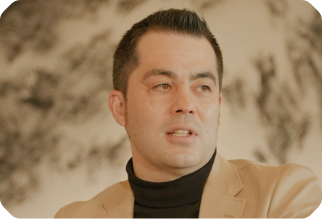
Angus Miyaji
Director, Japan World Link
After a role in the UK at a promotion agency that worked with Japanese companies in the UK, Angus Miyaji returned to Japan to set up Japan World Link, a company engaged in projects to attract foreign visitors to Japan. In addition to hosting the North Kanto Inbound Tourism Awards in 2018, 2019, and 2020, as well as the North Kanto Inbound Summit, he is also involved in various other initiatives to promote collaboration across the North Kanto area. -
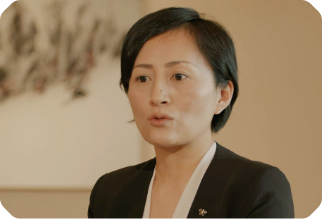
Kana Otowa
Manager, Otowa Creation
Kana Otowa previously studied abroad in the US and Italy, later learning about hospitality and the Slow Food movement. She is currently in charge of services and weddings at Otowa Restaurant, which is a member of Relais & Châteaux, a global association of luxury hotels and restaurants. She is also involved in food education for children and offers on-site cooking classes. Since January 2023 she has been an executive officer at Relais & Châteaux. -
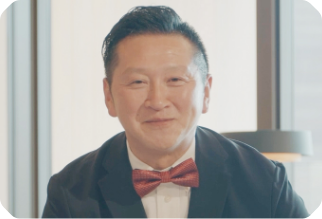
Kenichi Watanabe
Director, Cool Japan Public-Private Partnership Platform Value Designer, XPJP Inc.
Born in Tochigi City in Tochigi Prefecture, Kenichi Watanabe graduated from Gakushuin University before joining KDDI and later the Asahi Shimbun Company. He went on to study social media marketing and media strategy at the University of California San Diego and international business at the University of Washington. He returned to the Asahi Shimbun Company after his returning to Japan, and worked on a collaborative project with the Japanese government. In 2008, he was then dispatched to the Office for the Promotion of Regional Revitalization at the Cabinet Secretariat. In 2010 he established the regional production company Genki Japan in 2010, in 2015 the public-private social production company XPJP in 2015, and in 2021 a space design company Space SAGA in 2021. He currently develops a range of collaborative projects nationwide with governments, businesses, media outlets, and citizens across Japan. He also serves as a visiting professor at the Kyoto University of the Arts, a visiting professor at the Tohoku University of Art and Design, and a researcher at the Graduate School of System Design and Management at Keio University. One of his hobbies is playing lacrosse.


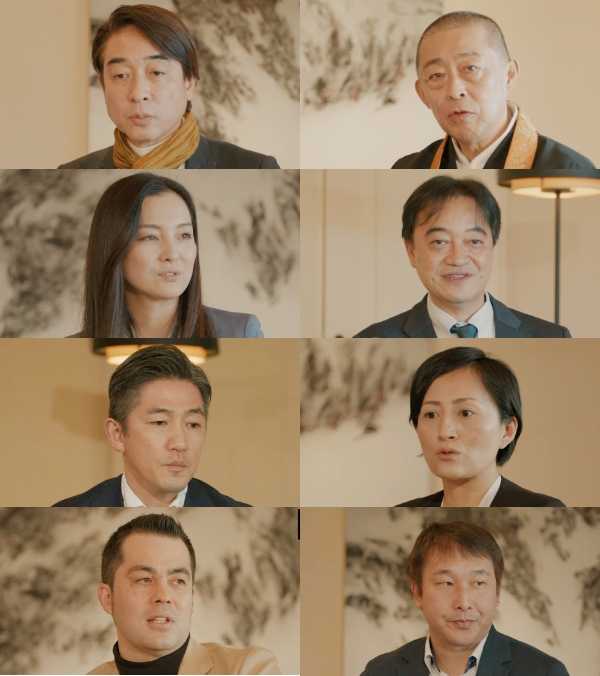


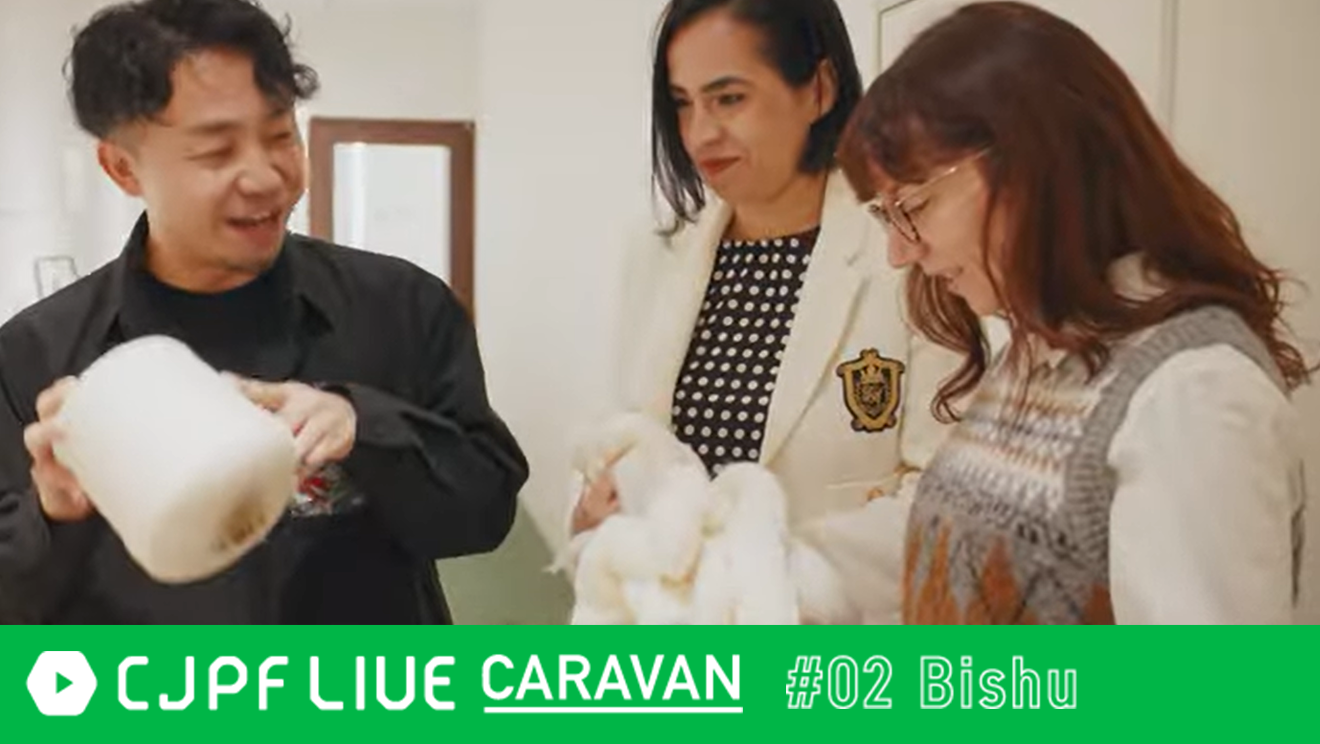
Greetings in line with the 3rd CJPF Live
Yoshiaki Hompo
Chief of the UNWTO Regional Support Office for Asia and the Pacific Treated as Executive Officer of TOBU RAILWAY Co., Ltd
Greetings in line with the 3rd CJPF Live Yoshiaki Hompo Chief of the UNWTO Regional Support Office for Asia and the Pacific Treated as Executive Officer of TOBU RAILWAY Co., Ltd UNWTO(United Nations World Tourism Organization) is focusing on promoting sustainable tourism. What is the most important thing is not quantity, but quality. While respecting the nature, culture, and history of each region, it is important to welcome customers who have a strong desire to spend. This is why it is essential to attract the wealthy. The wealthy demand high quality in every aspect of their trip, from arrival to departure, accommodation, dining, activities, shopping, and transport. They also require flexible and straight through services. Rather than simply having visitors enjoy food and tourism in Japan, I hope we can enhance the competitive advantage of Japanese tourism through the promotion of gastro-tourism—which provides historical and cultural experiences and garners interest in that area—and the improvement of our selling points, accommodation, personnel, and international connections, four elements that Japan is said to be lacking.